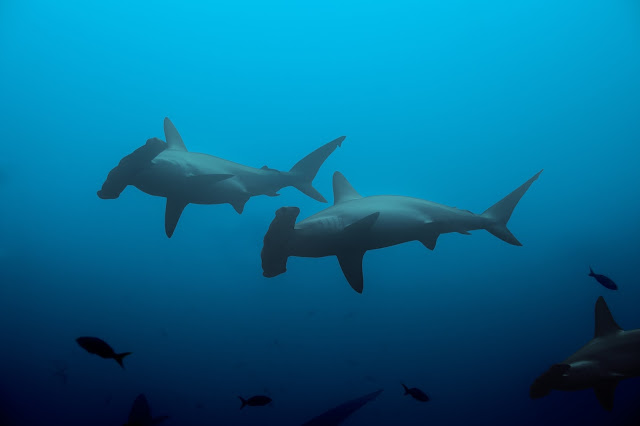Regardless of your personal opinions about TV programs about sharks, we can all agree that humans have had a long-standing fascination with sharks. In light of sharks in the news after recent shark attacks and the infamous "Shark Week", it seems like the right time to investigate some shark science and activities!
 |
| image: by Zac Wolf CC BY-SA 2.5 |
This post contains affiliate links, please see disclosures for more information.
Researchers with the University of
Hawaii and the University of Tokyo are using cameras mounted on shark
fins to learn more about their behavior. For some great pictures from
this work, check out Live Science's article here. One of the most fascinating things the
scientists have learned is that throughout the day the sharks spend
time in different depths of the ocean. They also have come to the
conclusion that some sharks are actually positively buoyant. In other
words, the sharks' physiology is such that they tend to float to the
surface and have to work to keep themselves deep in the water.
There are many resources and activities
out there for learning about sharks. Although school is out for the
summer, these would be fun at-home investigations or great ideas for
summer camp:
- The Shark Research Institute- Handouts for Teachers
- Chomp! An activity about shark tooth adaptations
- Shark Sizes- compare your height to the length of different sharks
- Sharks: Taking a Bite Out of the Myth. Use population data about sharks to better understand their behavior.
- A Shark's Sense of Smell. Discover how
sensitive a shark's sense of smell is.
Read More:
- Live Science: Photos: Deep-Sea Shark Migrations Captured with Fin-Mounted Cameras
- Washingtonian: The Reasons Why Scientists Get Angry at Shark Week
- NPR: After Sketchy Science, Shark Week Promises to Turn Over a New Fin
- Newsweek: You're 100% Wrong about Shark Week



No comments:
Post a Comment